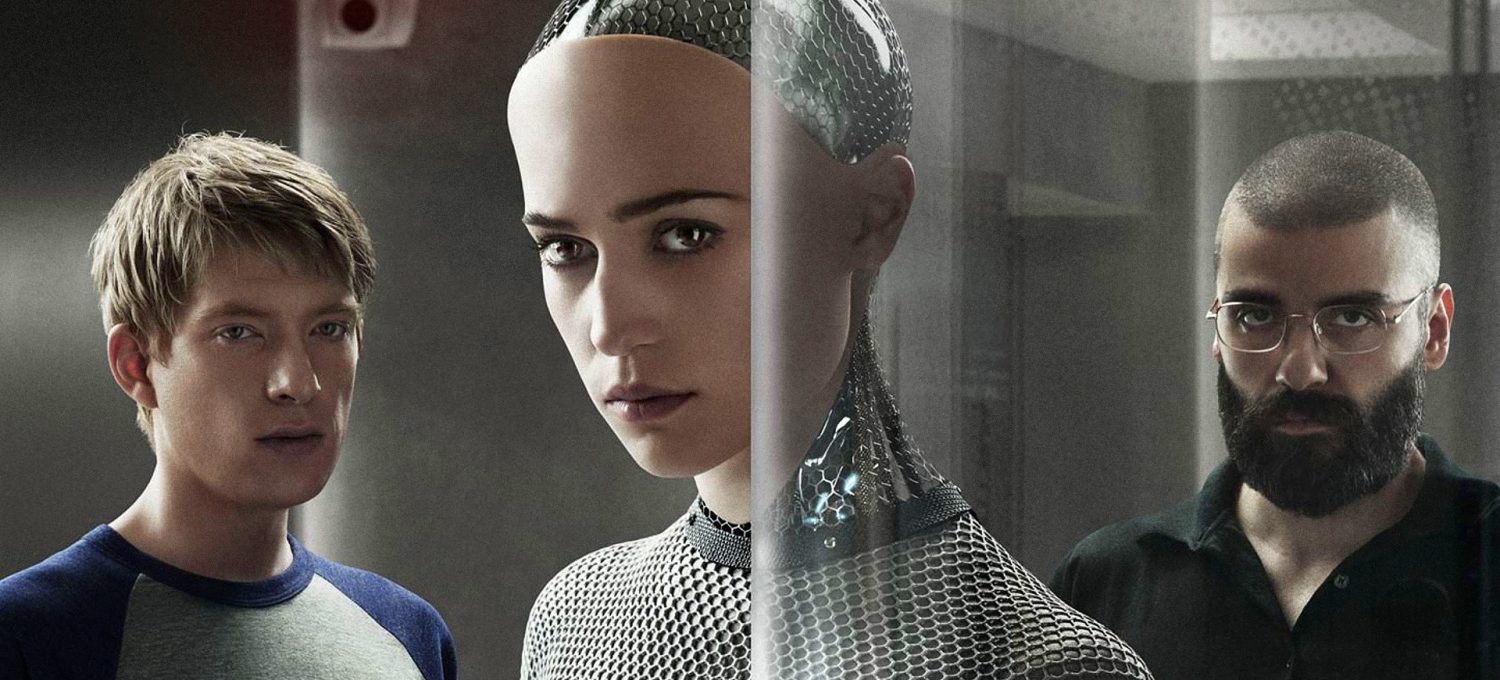Alex Garland‘s Ex Machina, his first as writer and director, proves that you don’t need eight-figure budgets to make a smart, thrilling sci-fi film, although seamless CGI still helps.
Nathan (Oscar Isaac) is the architect of BlueBook: think Google with 94% market share. Rather than selling all that data to corporations, he’s compiled it to create a level of artificial intelligence that the world has never seen in the form of Ava (Alicia Vikander), a robot with a beautiful face and a sharp wit. He recruits Caleb (Domhnall Gleeson), one of BlueBook’s programmers, to help perform the Turing test on Ava, a test to determine whether or not she exhibits intelligent behavior equivalent to, or indistinguishable from, that of a human. As their interview sessions progress, Caleb realizes that Ava has both intelligence and an agenda. By manipulating Nathan’s power grid, Ava gradually reveals to Caleb the darker side of Nathan’s work. As Caleb devises a plan to liberate Ava, he quickly realizes that he has been a pawn in someone else’s all along.
Ex Machina benefits from stunning locations and a sharp cinematography that juxtaposes the beauty of nature with the Apple-aesthetics of our technological surroundings. As in most of his films, Oscar Isaac steals the show, turning in a flawless performance as a tortured, maniacal genius. Watching him swing seamlessly from a drunken, dancing bon vivant to a visionary creator is a thrill.

From the beginning, Ex Machina raises explicit theological, spiritual, moral, and ethical questions, which seem to give rise to countless others after the credits roll. The first might be the role of surveillance in daily life: Caleb’s election to participate in the Turing test is highly questionable. The ways in which Nathan monitors Caleb and Ava’s conversations are suspect as well. Of course, one central theme concerns the definition of life and what it means to be human. Ava is convinced that she is or has life, but as their conversations progress, Caleb begins to question his.
One exchange between Nathan and Caleb points to the theological implications of Ex Machina. Nathan boasts that his creations will shape the history of mankind. Caleb corrects him, saying that his artificial intelligence will shift the history of the gods. With each new development in science and technology, we have access to greater power, abilities that at one time would have been considered, with great trepidation, god-like. Of course, we must consider the proper limits of knowledge and technological progress. Just because we can make certain leaps, should we? And if we do make those advances, how will we use this newfound power?
Ex Machina (108 mins.) is rated R for graphic nudity (this seems like a stretch), language, sexual references and some violence. It is in limited release now and will go wide on Friday, April 24th.
